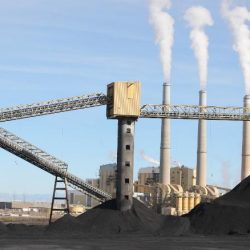The Supreme Court has weakened executive agencies and their ability to regulate and make policy. No agency has been more affected than the Environmental Protection Agency (EPA). What is next for environmental protection? [ dur: 58mins. ]
Traditionally, the US Supreme Court has given executive branch agencies such as the Environmental Protection Agency quite a bit of latitude at enforcing Congressional legislation. This principle is called Chevron deference. But in this term, the Supreme Court weakened this principle significantly, in particular in the area of environmental protection. In West Virginia v EPA, the Court signaled that the EPA can only enforce on areas specifically outlined by Congress. Specifically, it weakened the agency’s ability to take regulatory steps to combat climate change. We will discuss what this means for the EPA, for public policy, and for the US’s ability to make international commitments on the environment.
- Joel A. Mintz is Professor Emeritus of Law and C. William Trout Senior Fellow in Public Interest Law at Nova Southeastern University Law Center in Fort Lauderdale, Florida. He is the author of Enforcement at the EPA: High Stakes and Hard Choices and “Thinking Beyond Gridlock: Towards A Consistent Statutory Approach To Federal Environmental Enforcement“.
- Richard N. L. (Pete) Andrews is a Faculty Fellow of the Institute for the Environment and Professor Emeritus in the Department of Public Policy at UNC-Chapel Hill. He is the author of Managing the Environment, Managing Ourselves: A History of American Environmental Policy.
- Pamela Chasek is Professor and Chair of the Political Science Department at Manhattan College. She is the author of Global Environmental Politics.
This program is produced by Ankine Aghassian, Doug Becker, Mihika Chechi, Melissa Chiprin, and Sudd Dongre.
Podcast: Play in new window | Download (Duration: 58:01 — 53.1MB) | Embed
Subscribe: Apple Podcasts | Spotify | RSS
